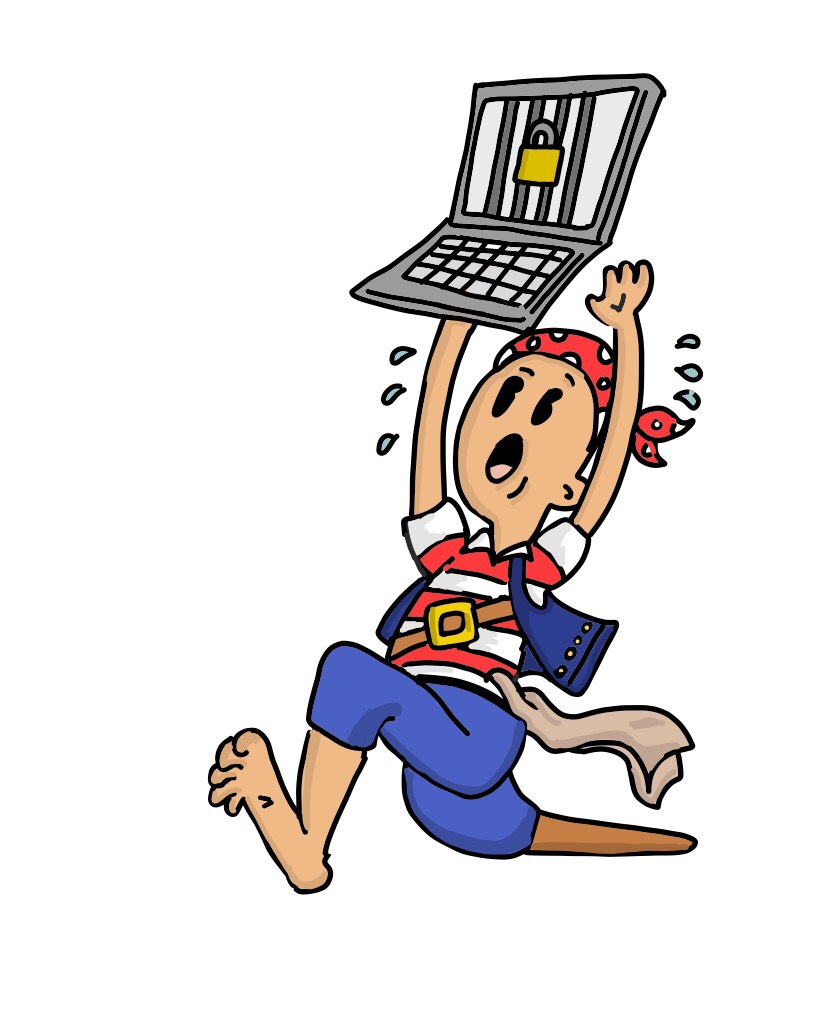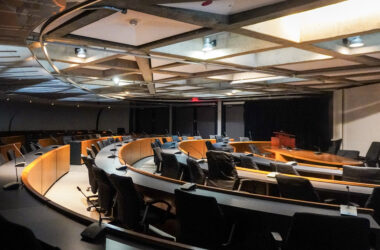Any student who frequently torrents movies in McLennan is probably familiar with the email notice from McGill letting them know that the copyright owner complained. IT Services wants to expedite this process, and send out more of these emails at a faster rate. In June 2017, the department installed an automated system that forwards any complaint from a copyright holder to the McGill email address associated with the alleged offender’s IP address. University officials hope that this system will make it easier for the school to comply with the Canadian copyright notice regime.
Copyright laws aim to provide creators the right to reproduce their works as they choose. According to Hans Parmar, a spokesperson for Canada’s Innovation, Science and Economic Development department, if someone downloads a copyright protected file, the burden lies with the copyright owner to pursue a copyright violation.
As the Internet Service Provider (ISP) on campus, McGill University is held accountable for copyright infringements made using its networks. Though McGill has prohibited the violation of copyright law on its networks since 2010, the new system will accelerate the enforcement process by receiving and forwarding these notices automatically.
“The system attempts to identify the individual associated with the claim,” Gabrielle Krim, a communications specialist with McGill IT Services, said. “If an association is made, the system forwards the original, unaltered claim notice to that individual. Upon receiving a notice of infringement, the recipient is not required to respond, and is advised not to click on any links within the notice without first consulting a lawyer.”
Although the notices themselves carry no legal weight, companies can sue offenders for financial compensation—a possibility they sometimes threaten in their notices. Several students expressed concern about McGill passing copyright infringement accusations along to students, even with the qualification that the recipients are not required to respond.
“I’ve known lots of people who’ve received emails from their ISP that threaten legal action or changes to their internet service,” Alex Mendell, U3 Engineering, said. “Sometimes they offer to settle the issue for a few hundred dollars. This behaviour is predatory because students aren’t always aware of the law, and don’t have any leverage with telecoms or the studios and record companies.”
Mendell also questioned whether McGill has a duty to safeguard students against abuse by companies enforcing copyright protection.
“I don’t take issue with copyright holders trying to combat piracy or with McGill for enforcing its policies,” Mendell said. “But if the school is going to take it upon themselves to issue these notices, they need to take steps to ensure that its students are aware of the laws and aren’t being extorted.”
Others expressed indifference about the policy, noting that wherever else students might use Wi-Fi, they have to agree to terms and conditions stipulating that they not download files illegally. Some students view the policy as a wash that is unlikely to change offenders’ behavior.
“A student torrenting HBO won’t quit just because they receive a notice,” Charlotte Zaininger, U3 Arts, said. “They’ll say ‘I’m on season six of Game of Thrones, try and stop me.’”









“Sometimes they offer to settle the issue for a few hundred dollars. This behaviour is predatory because students aren’t always aware of the law, and don’t have any leverage with telecoms or the studios and record companies.”
Come on, everyone knows that torrenting is against the law. Break the law, suffer the consequences.